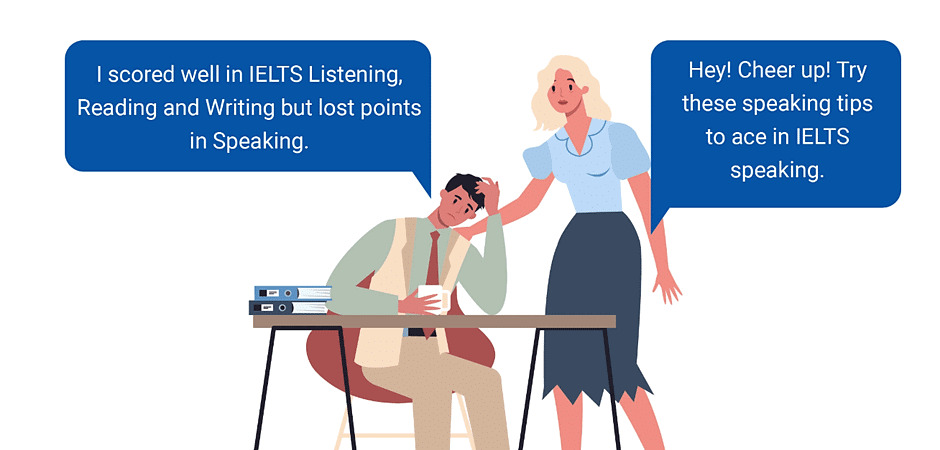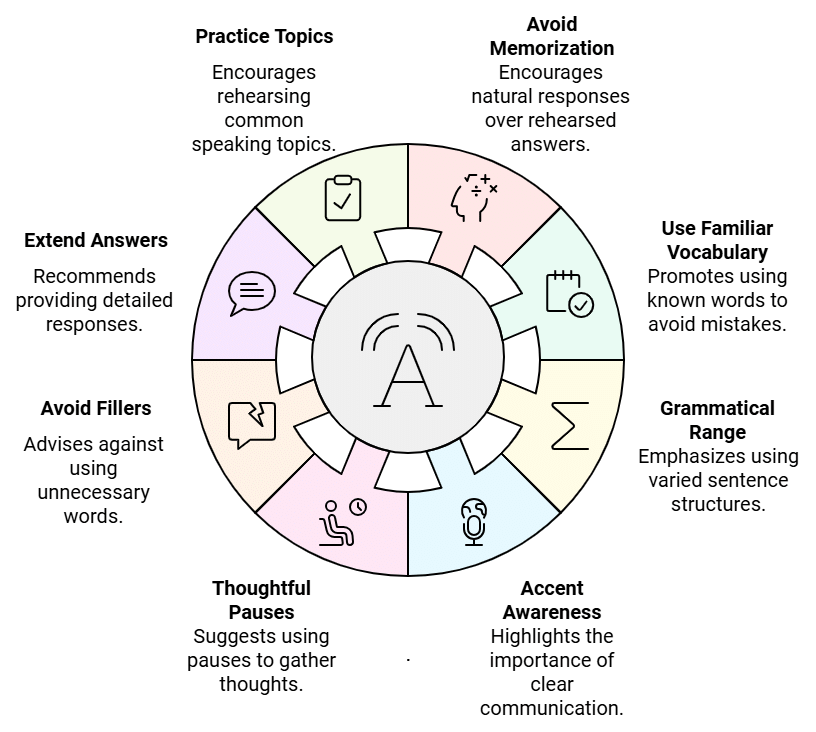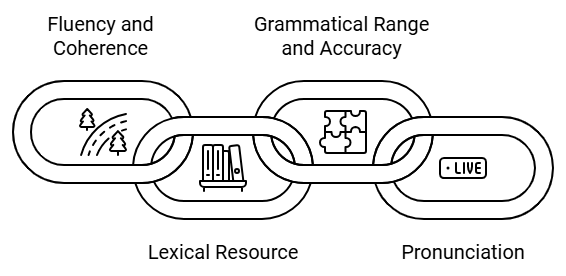Tips to Score 8+ Bands in IELTS Speaking | Speaking for IELTS PDF Download
Because it involves face-to-face communication, many applicants who take the IELTS Speaking test consider this section to be the most difficult. However, improving your score on the IELTS Speaking section is actually the simplest part of the test. You might question, "But how? Interviews are always so impromptu!
This is the reason why EduRev has made this guide to answer such questions of yours. Below given are some tips that will help you think on your feet in the speaking exam and help you score 8+ bands in this section.

Tip 1: Don't Memorize Answers
Don't memorize answers, especially in Part 1. Memorized language doesn't give the examiner an accurate measure of your English-language skills. The examiner will be able to tell if you have memorized your answers and this may influence your final band score.
Tip 2: Don't use Big and Unfamiliar Words
You may want to impress the examiner with big and complex words in your Speaking test. But to be safe, avoid using words you are not familiar with. There is a higher chance of making mistakes by either mispronouncing words or using them in the wrong context. Mistakes can affect your final band score.
Use a range of vocabulary that you know is relevant to the topic being discussed. Look at the topics in Tip 10, making vocabulary lists or mind maps to help you learn more words and phrases connected to these topic areas.
Tip 3: Use a Range of Grammatical
Structures
When IELTS examiners assess your speaking skills, they mark you against the following assessment criteria:
- Fluency and coherence
- Lexical resource
- Grammatical range and accuracy
- Pronunciation

Try and use a range of grammatical structures using complex and simple sentences to express what you want to say. Know your errors and practice speaking to friends in English, or record yourself to see if you can spot errors. If you hear an error, make sure to correct yourself. You are assessed on your ability to use different grammatical structures accurately, so it's important to practise speaking about the past, the present and the future using correct tenses.
Tip 4: Don't Worry About your Accent
With a face-to-face Speaking test, the IELTS examiner understands a wide range of accents and will be able to understand what you say, unlike an AI machine. If you can communicate well, then there is nothing to worry about. But do be aware of sounds that you have difficulty with and make sure to use stress and intonation as English is a stress-timed language. Practice with friends and they will tell you if they can't understand what you are saying.
Tip 5: Pause to Think
There is no harm in taking a brief pause to think about what to say. We all do it to process questions. You can use phrases to give you time to think during the Speaking test - phrases such as
- That's an interesting question
- I have never thought about that, but...
- Let me see
- That's a good point
- That's a difficult question, but I'll try and answer it
- Well, some people say that is the case, however, I think...
- Let me think about that for a minute
Tip 6: Avoid using Fillers
Speak confidently and avoid using filler words. We generally use fillers when we don't know what to say, however, this shows the examiner that you can't access the appropriate language or ideas so it's important to avoid them and to use the phrases we gave you in Tip 5.
Avoid the following fillers:
- Like
- You know
- Umm...
- Ahh...
- Ahh...
- Well
- Yeah...
Tip 7: Extend your Answers
Try and answer the examiner's questions in full. Extend your answers and don't wait for the examiner to prompt you with a question. When your answers are short, this shows the examiner that you cannot talk in detail about a topic. If the examiner says 'Why?', they are prompting you to give a reason for your answer and to extend more fully.
Tip 8: Smiling Helps with Pronunciation
Smiling can help calm your nerves which in turn helps your pronunciation. Make sure to enunciate clearly, opening your mouth wide enough so that sounds come out clearly. When we smile, our mouth is bigger and the tone of our voice is more friendly. Using clear enunciation and tone will show the examiner that you can use a range of pronunciation features.
Tip 9: Don't Speak in a Monotone
Sometimes when we speak, we produce a flat sound, a monotone, with little variation. This makes it more difficult to express what you say and makes it more difficult for the listener to identify what parts of your message are important. Putting emphasis on certain words and pausing at sections in your speech can make your conversation with the IELTS examiner more engaging. When we emphasize certain words it makes it easier to compare and contrast ideas by stressing keywords. It also increases the flow of conversation, so remember:
- Don't speak in a monotone
- Vary the stress and intonation to add emphasis
- Use your hands to gesture and help the rhythm of the conversation
Tip 10 - Practice Common IELTS Topics
Part 2 of the IELTS Speaking test requires you to speak on a given topic for about 2 minutes. Practice common IELTS topics with friends, family or colleagues to improve and learn the vocabulary associated with each topic.
Common topics you can practice for the Speaking test include:
- Tourism and travel
- Education
- Transport
- Environment
- Family life
- Sport and recreation
- Crime and punishment
- The Internet
- Advertising and retail
|
33 videos|169 docs
|
FAQs on Tips to Score 8+ Bands in IELTS Speaking - Speaking for IELTS
| 1. What are the key factors that contribute to scoring 8+ bands in IELTS Speaking? |  |
| 2. How can I improve my vocabulary for the IELTS Speaking test? |  |
| 3. What types of questions can I expect in the IELTS Speaking test? |  |
| 4. How important is pronunciation in the IELTS Speaking test? |  |
| 5. What are some effective strategies for practicing IELTS Speaking at home? |  |

















